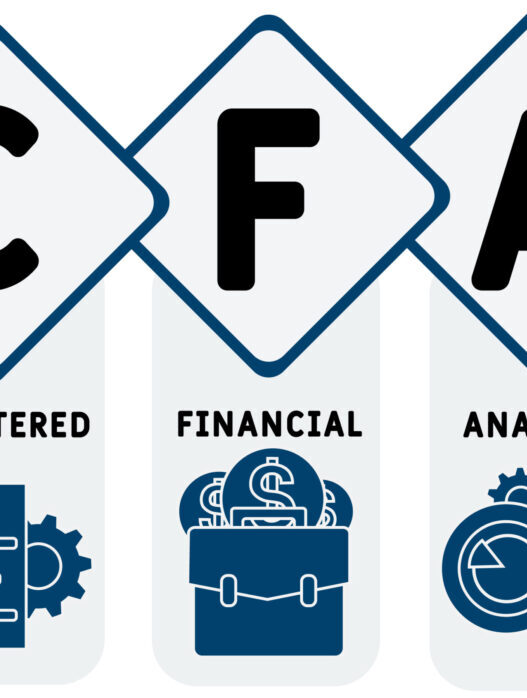One of the more popular questions received at 300Hours is how to break into the various finance industries that strongly target CFA candidates and charterholders. Wealth management is a classic CFA career path, with most wealth managers being CFA-qualified. But how exactly do you break into wealth management?

This article serves as an insider’s guide on how to get into wealth management. I’ll share insights on what the wealth management industry does, what companies look for, the skills you’ll need, and optimal career paths. Read on!
Contents
- What is Wealth Management, Exactly?
- Holistic Wealth Management – What Does That Really Mean?
- What Other Skill Sets and Credentials Do I Need?
- How to Get into Wealth Management: Recommended Career Paths
- What Clients Do I Work With?
What is Wealth Management, Exactly?
Broadly speaking, wealth management is typically defined as a division within a bank or investment firm that offers services to clients that include, but are not limited to:
- Discretionary fee-based and cash management programs
- Corporate business solutions
- Insurance
- Tax and estate planning
- Charitable gifting
In the past, traditional brokerage firms would act as order-takers when a client would call them, meaning they would simply act on behalf of the client and buy/sell securities for them. Presently, regulations are changing worldwide, pushing brokers towards a more holistic approach to wealth management.
Holistic Wealth Management – What Does That Really Mean?
If you’ve covered the material in CFA Level 3 pertaining to Individual and Institutional Investors, you’ll have an idea of what is meant by “holistic.” This type of service embraces all areas of a client’s assets, liabilities, and tax/estate considerations, taking everything into account as one comprehensive picture.
This is crucial for anyone considering a career in wealth management. If your goal is solely to manage money as a portfolio manager, you may find fewer opportunities today compared to a few years ago. A genuine interest in providing financial planning advice and utilizing insurance solutions to minimize tax liabilities is essential.
What Other Skill Sets and Credentials Do I Need?
Depending on where you live, various regulatory bodies will have different requirements to legally work and provide investment advice. The CFA designation is recognized internationally, so pursuing it is a step in the right direction. However, it does not guarantee a job, even though it is a challenging credential to obtain compared to basic federal or provincial licensing.
If you live in North America (Canada or the USA), there are specific paths of licensing and work experience required before you can legally provide client advice.
Key Soft Skills for Success
Some basic soft skills are commonly recognized among top advisors in the industry:
- Strong Interpersonal Skills: Ability to work well with others, along with exceptional verbal and written communication skills. This includes drafting well-written proposals and explaining financial plans clearly.
- Entrepreneurial Spirit: In retail management, you’ll likely start by running your business as if it were your own. This means acting and thinking like a business owner, requiring the ability to multitask and pick up slack in areas you may not love (like marketing).
- Sales or Business Development Experience: A strong sales background and the ability to network and connect with people through a consultative approach can lead to success in wealth management. If you thrive on closing client accounts and crafting compelling proposals, this path may suit you well.
How to Get into Wealth Management: Recommended Career Paths
Among various ranks and job titles in wealth management, the key difference is whether you are responsible for your own set of clients (i.e., a ‘relationship manager’ or RM) or supporting an RM. Here are three main career paths to consider:
- Pure Wealth Management: You can start in wealth management straight from university as an assistant RM, usually in the rank of Analyst, eventually rising to Associate. Larger wealth management companies often offer graduate programs, though boutique firms might not have similar paths.
- Mass Affluent RM: If a graduate assistant RM opportunity isn’t available, starting in retail banking is another route. Becoming an RM for mass affluent clients (with disposable assets of about $500,000-$1M) can lead to private banking as your clients grow wealthier.
- Experienced Hires: Wealth managers also hire from other financial sectors or even outside finance. Typically, these hires have connections to bring a roster of wealthy clients to the firm and possess existing asset or wealth management experience and qualifications. This includes roles like investment bankers or family office managers.
Given the insights on breaking into wealth management from the article, what strategies do you think CFA candidates should prioritize to successfully enter this field? Considering the importance of a holistic approach to client management, how might candidates best position themselves to develop the necessary interpersonal skills and entrepreneurial mindset? Additionally, what are your thoughts on the value of networking and sales experience in securing a role in wealth management, particularly for those starting out as assistant relationship managers or transitioning from other financial sectors?














